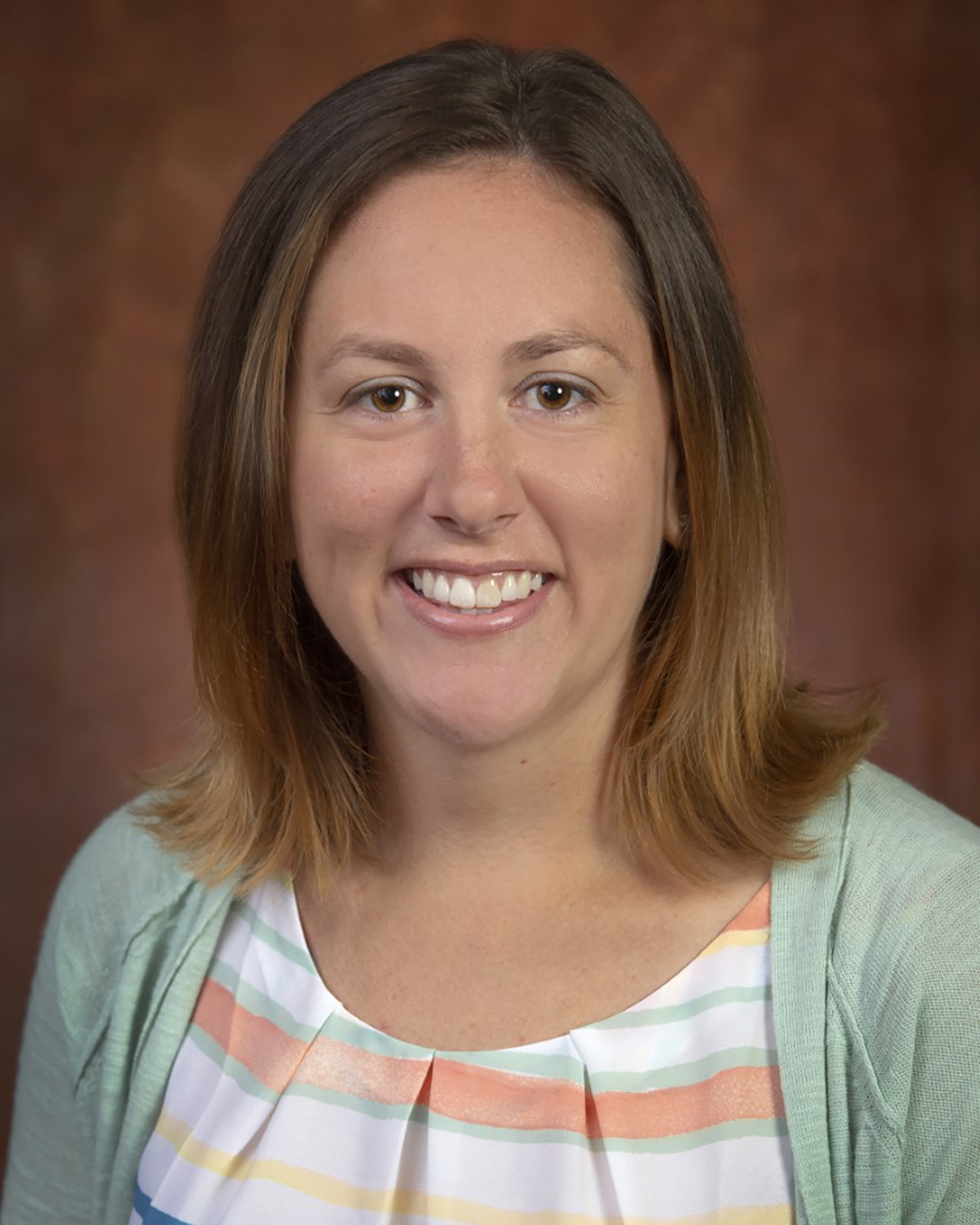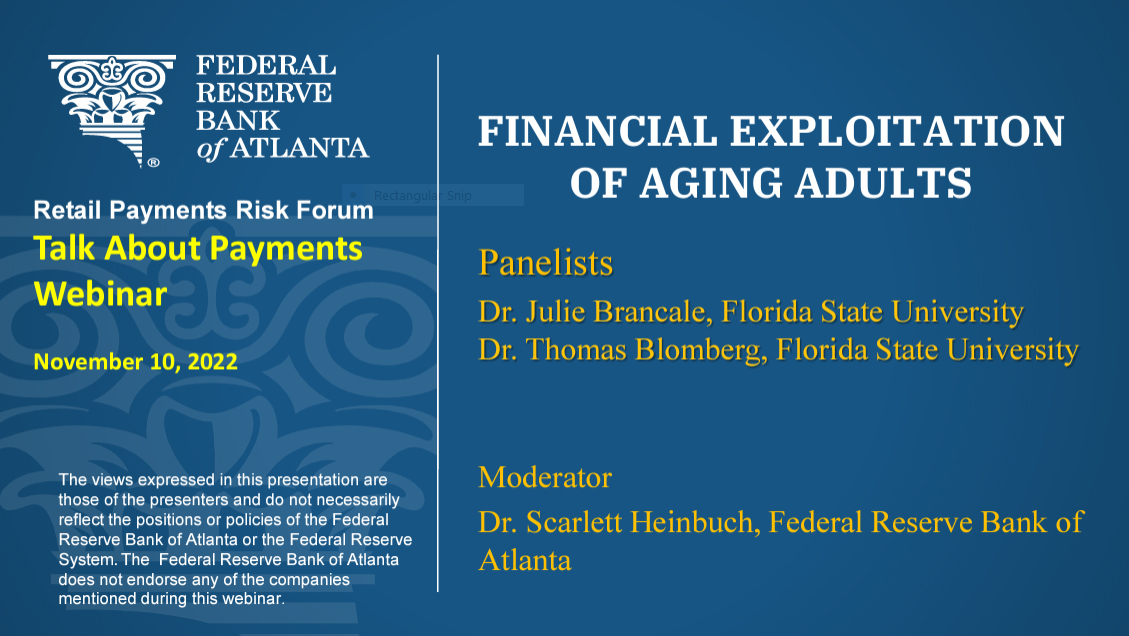
The Co-Directors of the Aging Adult Fraud Research & Policy Institute, Dr. Thomas G. Blomberg and Dr. Julie Brancale recently appeared on the Federal Reserve Bank of Atlanta's Talk About Payments Webinar to discuss financial exploitation of aging adults.
Topics covered in the presentation included an overview of the aging adult population in the United States, a discussion on why the current generation of aging adults is unique from prior generations, and the next steps for evidence-based policies and practices to confront financial exploitation of aging adults.

Dr. Julie Brancale
Assistant Professor, Co-director Aging Adult Fraud Research and Policy Institute
Financial exploitation of aging adults is a significant—and growing—social problem in the United States. Dr. Brancale said, "Financial exploitation is the most common form of self-reported abuse by aging adults. Aging adults are more vulnerable than younger adults for financial exploitation scams involving telemarking, charitable donation, real estate, automobile and home repair, lottery and sweepstakes, and healthcare."

Dr. Thomas Blomberg
Dean and Sheldon L. Messinger Professor of Criminology, Co-director Aging Adult Fraud Research and Policy Institute,
Dr. Blomberg added, "Adults 65 and older comprise the fastest-growing segment of the United States population. They control 70% of our country's invested wealth, making them a looming target for scammers. Approximately 10,000 people turn 65 each day, and the number of aging adults is estimated to exceed 71 million by 2030. Financial exploitation of this group is a critical and timely problem that requires additional research and evidence-based prevention and response strategies."
Financial exploitation of aging adults is also vastly under-reported. According to Dr. Brancale, only 5.4 percent of aging adults report financial exploitation to authorities yearly. She said, "Our research has consistently shown that what is reported represents only the tip of the iceberg. Many cases go unreported due to uncertainty about where and how to report financial exploitation, embarrassment, and concerns that the aging adult may be perceived as incapable of handling their own finances or lose their ability to live independently."
Many of these scenarios can lead to tragic consequences. Compared to their younger counterparts, aging adults take much longer to recover financially from an exploitation incident, with many never fully recouping their losses. Financial exploitation can also significantly reduce aging adults' quality of life and lead to an increased risk of premature death.
Dr. Blomberg and Dr. Brancale highlighted evidence-based policy and practice strategies that retirement communities or other areas with large concentrations of aging adults could implement to help combat the financial exploitation of their residents. Dr. Blomberg said, "community service centers could be a one-stop shop for education and assistance. These centers would provide educational classes and help disseminate information about potential scams and how to respond to and report financial exploitation—not just holding classes for the victims but their support network and families."
Dr. Blomberg and Dr. Brancale also discussed the Aging Adult Fraud Research & Policy Institute's work, in conjunction with the Mayo Clinic, to create a risk assessment instrument that healthcare providers can employ nationwide to identify who might be at risk. Webinar moderator and Payment Risk Expert for the Federal Reserve Bank of Atlanta, Dr. Scarlett Heinbuch, said it was a subject the audience was keenly interested in during the Q&A session.
She said, "Finding practical solutions to help reduce the financial exploitation of aging adults can be challenging. We look forward to continuing this conversation with Dr. Brancale and Dean Blomberg as they implement these tools and approaches to positively impact our elders, their families, and their communities."
To watch the webinar, please visit the Federal Reserve Bank of Atlanta.
The Aging Adult Fraud Research & Policy Institute is one of 11 research and policy institutes that branch from the FSU College of Criminology and Criminal Justice's Center for Criminology and Public Policy Research. The rapidly growing population of aging adults in the United States represents a vulnerable target for violent victimization, sexual victimization, and financial exploitation. The Institute conducts rigorous research about the risk factors, protective factors, and consequences of financial exploitation and victimization of aging adults. Importantly, the Institute uses the research to develop evidence-based policy and practice recommendations that are presented to local, state, and national policymakers and practitioners to reduce the risks of victimization of exploitation of aging adults.

